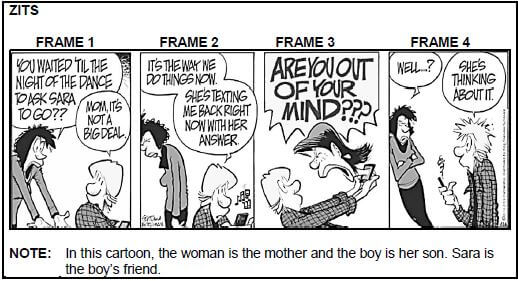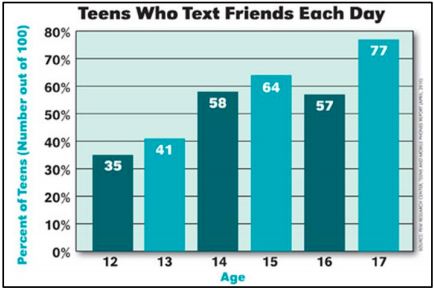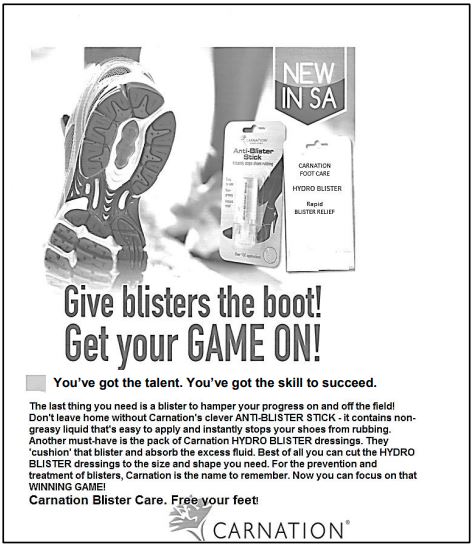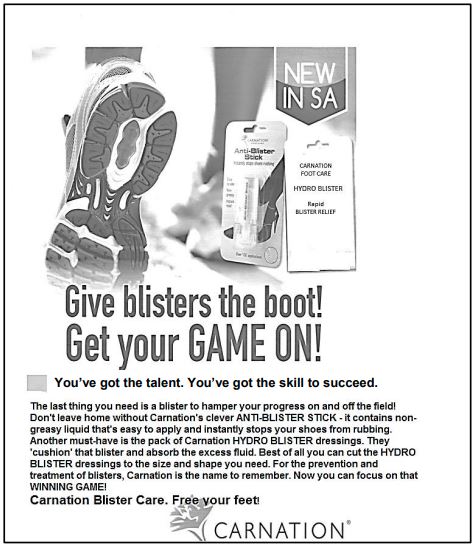ENGLISH FIRST ADDITIONAL LANGUAGE GRADE 12 PAPER 1 QUESTIONS - NSC PAST PAPERS AND MEMOS SEPTEMBER 2017
Share via Whatsapp Join our WhatsApp Group Join our Telegram GroupENGLISH FIRST ADDITIONAL LANGUAGE
GRADE 12
PAPER 1
NSC PAST PAPERS AND MEMOS
SEPTEMBER 2017
INSTRUCTIONS AND INFORMATION
- This question paper has THREE sections.
SECTION A: Comprehension (30)
SECTION B: Summary (10)
SECTION C: Language (40) - Answer ALL the questions.
- Start EACH section on a NEW page.
- Rule off after each section.
- Number the answers correctly according to the numbering system used in this question paper.
- Leave a line after each answer.
- Pay special attention to spelling and sentence construction.
- Suggested time allocation:
SECTION A: 50 minutes
SECTION B: 20 minutes
SECTION C: 50 minutes - Write neatly and legibly.
QUESTIONS
SECTION A: COMPREHENSION
QUESTION 1
Read BOTH (TEXT A and TEXT B) and answer the set questions.
TEXT A
COFFEE with a CAUSE Wendy Vermeulen is breaking down stereotypes surrounding people with disabilities.
[Adapted from Foschini Club, June 2016] |
1.1 Refer to paragraph 1.
1.1.1 Quote a SINGLE word that means ‘strange’. (1)
1.1.2 Explain how the atmosphere in the coffee shop in Long Street differs from the atmosphere in other parts of the Central Business District. (2)
1.2 Give TWO reasons why the coffee shop will benefit by being situated in an area where there are many businesses. (2)
1.3 What is the intention of the writer using the words, ‘At just 25’ (line 6)? (2)
1.4 Explain what stereotypes regarding mental disabilities Wendy Vermeulen is trying to break down. (2)
1.5 Refer to paragraph 3.
How do you think a chef and a special-needs teacher can contribute to an initiative like Brownies & Downies? (2)
1.6 Which mentally challenged people will be trained in hospitality? (2)
1.7 What are the TWO main aims of Brownies & Downies? (2)
1.8 Explain the term, ‘household name’ in line 28. (1)
1.9 Refer to paragraph 5. Why is the following statement FALSE?
Only tourists have access to the coffee shop. (1)
1.10 Choose the correct answer to complete the following sentence. Write down ONLY the question number (1.10) and the letter (A–D) of the correct answer.
The term ‘their signature chocolate brownies’ in line 40 means the chocolate brownies ...
- have signatures on them.
- have musical notes on them.
- are associated with them. (1)
- are the best in town.
1.11 What makes the title, ‘Coffee with a Cause’ suitable for this article? Substantiate your response. (2)
1.12 Explain what message Wendy Vermeulen is trying to convey by saying “I really want ... be shut out” (lines 57–59). (2)
1.13 Do you find the name of the shop offensive? Give a reason for your answer. (2)
TEXT B
1.14
- Which age group spends the least amount of time texting their friends? (1)
- Provide a reason why this age group does not text their friends as often as older teens do. (1)
1.15 Why do you think 15-year-olds spend so much time texting each day? (2)
1.16 Why has the information on teens who text their friends daily been presented in the form of a bar graph instead of words? (2)
TOTAL SECTION A: 30
SECTION B: SUMMARY
QUESTION 2
As the head prefect at your school, you have been asked to address the grade 11 learners on how to be a good leader.
Read TEXT C below and list SEVEN points that you will include in your speech on how to be a good leader.
INSTRUCTIONS
- List SEVEN points in full sentences using NO MORE than 70 words.
- Number your sentences from 1 to 7.
- Write only ONE point per sentence.
- You are advised to use your OWN words.
- Indicate the number of words you have used in brackets at the end of your summary.
TEXT C
HOW TO BE A GOOD LEADER Being a leader at school does not always mean you have to have perfect grades. But you should show a positive attitude towards your classes and give your best effort to everything. [Adapted from www.wikihow.com] |
TOTAL SECTION B: 10
SECTION C: LANGUAGE
QUESTION 3: ANALYSING AN ADVERTISEMENT
Study the advertisement (TEXT D) and answer the set questions.
TEXT D
NOTE:
- For one-word answers, write only the question number and the word.
- For multiple-choice questions, write only the question number and the letter (A–D) of the correct answer.
3.1 What is the name of the brand being advertised? (1)
3.2 Who is the target audience of the advertisement? Give a reason for your answer. (2)
3.3 The expression, ‘give blisters the boot!’ means ...
- get rid of blisters.
- wear boots to prevent blisters.
- boots cause blisters.
- kicking causes blisters. (1)
3.4 Explain how the words ‘You’ve got the talent. You’ve got the skill to succeed’, will encourage the reader to buy the product. (3)
3.5 What is the function of the exclamation marks in the advertisement? (1)
3.6 In your view, how does this advertisement support the slogan, ‘Carnation Blister Care. Free your feet!’? Substantiate your answer. (2)
[10]
QUESTION 4: ANALYSING A CARTOON
NOTE:
- For one-word answers, write only the question number and word.
- For multiple-choice questions, write only the question number and the letter (A–D) of the correct answer.
Read the cartoon (TEXT E) below and answer the set questions.
TEXT E 
4.1 Refer to frame 1.
4.1.1 Which verbal and visual clues does the cartoonist use to show that the mother is surprised? (2)
4.1.2 Write the word, ‘til’ out in full. (1)
4.1.3 The expression, ‘it’s not a big deal’ means it is not ...
- a good offer.
- a serious problem.
- a fair deal.
- good treatment. (1)
4.2 How do you know that the boy is being texted in frame 2? (1)
4.3 What evidence is there in frame 3 that Sara may not accept the boy’s invitation to the dance? State TWO points. (2)
4.4 What does the smoke coming from the phone suggest in frame 4? (1)
4.5 Consider the cartoon as a whole. If you were Sara would you have accepted the invitation to the dance? Substantiate your answer. (2)
[10]
QUESTION 5: LANGUAGE AND EDITING SKILLS
5.1 Read the following passage (TEXT F), which contains some deliberate errors, and answer the set questions.
TEXT F
QUEST autism school turns 21
[Adapted from PE EXPRESS, June 2016] |
5.1.1 Name TWO punctuation marks that can be used to replace the dashes in the following sentence:
This year Quest School – the first Eastern Cape school founded for children with autism – celebrates 21 years of existence. (2)
5.1.2 Correct the SINGLE error in each of the following sentences:
- The lab accommodate nearly 100 pupils today. (1)
- Quest was originally housed in an open church building when it first opened it’s doors. (1)
- The school’s journey began thanks to the support by the Jeeva Foundation. (1)
- Quest School are now the only government subsidised school in the Eastern Cape catering for children with autism between the ages of 5 and 18. (1)
5.1.3 Rewrite the following sentence in reported speech:
Lottie de Vries said, “The school’s doors are open because of the many volunteers who have supported the school.” (3)
5.1.4 Rewrite the following sentence in the passive voice:
The therapy department employs a speech therapist. (2)
5.1.5 Combine the following sentences into a single sentence by using the word ‘Although’:
The school currently receives a subsidy from the Department of Education.
The school is still heavily reliant on charitable donations. (2)
5.1.6 Choose the correct word from those given within brackets. Write down ONLY the word:
Lottie de Vries, (which/who/whom) is the principal of Quest School, appreciates the support of the community. (1)
5.2 Study the text (TEXT G) below and answer the set questions.
TEXT G
After an absence of 130 years free-roaming lions were introduced into the Cradock area again in 2013. [Adapted from SanParks Times, March 2016] |
5.2.1 Provide the feminine form of the underlined word in the following sentence:
Free-roaming lions were introduced into the Cradock area. (1)
5.2.2 Write down an antonym for the underlined word in the following sentence:
The park was already home to two five-year-old brothers before the arrival of the females. (1)
5.2.3 Choose the correct answer from the options in the brackets:
The (pride, herd) of lions has settled in. (1)
5.2.4 Complete the following tag question:
Visitors can visit the Mountain Zebra National Park, ...? (1)
5.2.5 Rewrite the following sentence in question form:
The two feline brothers made a home in Mountain Zebra National Park. (1)
5.2.6 Choose the correct answer to complete the following sentence:
After an absence of over 30 years free-roaming lions were introduced into the Cradock area.
The part of speech of the underlined word is an example of ...
- a noun.
- an indefinite article.
- a definite article.
- a preposition. (1)
[20]
TOTAL SECTION C: 40
GRAND TOTAL: 80



